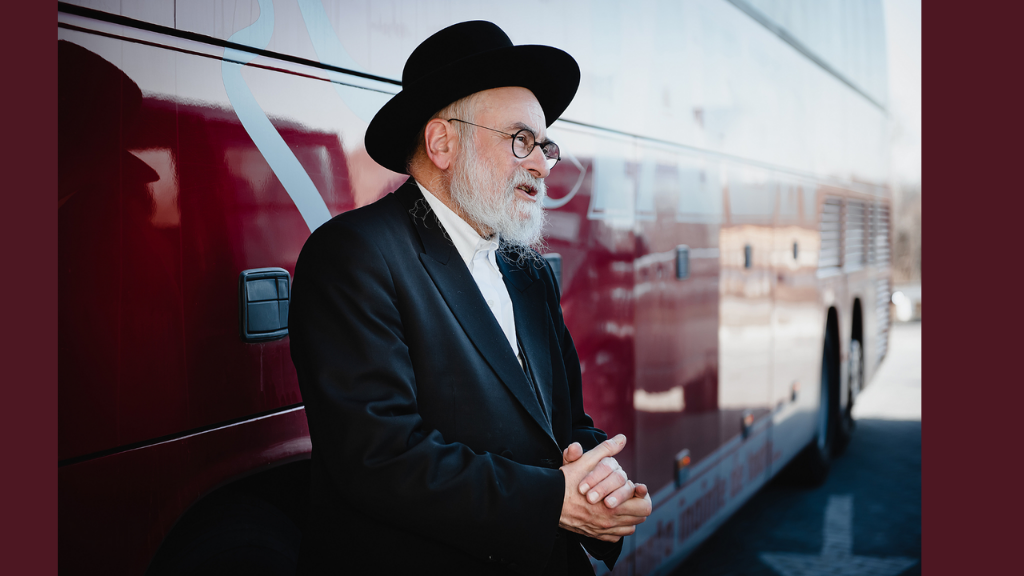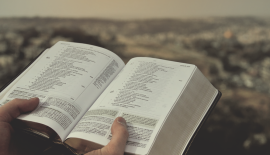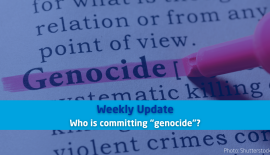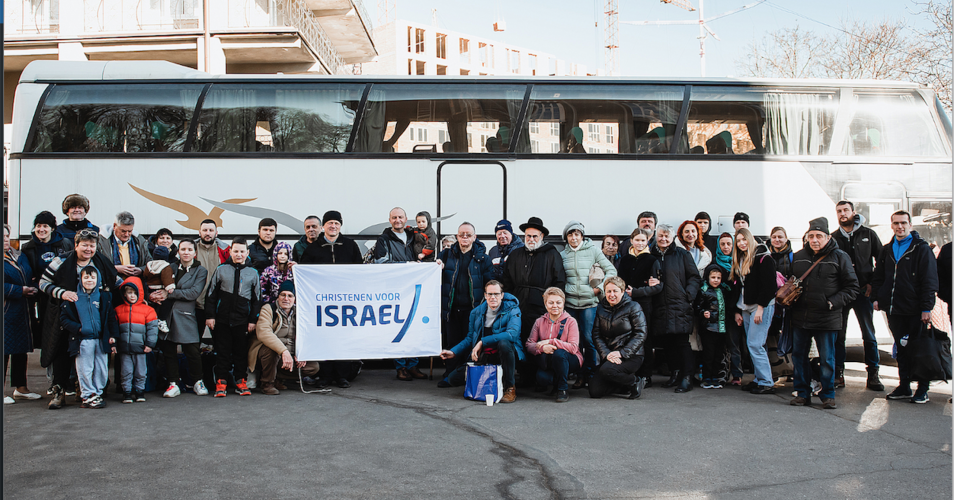The Dutch Chief Rabbi Jacobs in Ukraine (4)
We go home today. It takes almost three hours to travel from the location where we spent the night to Iasi, the small airport right after crossing the Moldovan-Romanian border. At arrival at the airport in the Netherlands, we will have been away for 72 hours. In total, we drove 1384 kilometers on highways full of holes and bumps. Of those 72 hours, we have spent at least fifty hours on a bus, in a car, taxi or on a plane.
We are at the Romanian airport now, and I have a multitude of impressions on my mind. First of all, I confessed to my wife Blouma that, despite my emphatic commitment not to enter the territory of Ukraine, I violated our agreement, for which, by the way, I wasn’t the one to blame. In fact, I was more or less ‘kidnapped’ by Koen Carlier. I always thought we would exclusively stay in Moldova and Romania. Fortunately, Blouma has forgiven me, and I am allowed to come home again. Nice joke!
But all those refugees have no home anymore and those mothers with children have to hope and pray that they will ever see their husband and/or father again. I am going back to my work as Chief Rabbi, but all those fellow rabbis from Ukraine have no job, no house, no shul and no community left. They are still working very hard to help their community members to flee, to provide shelters where possible, to get them to Israel. Some of my colleagues, however, are beginning to realize that they must start from scratch, that they have lost everything. And what about the members of their Jewish communities? Thank G’d, many refugees have arrived safely in Israel, they are still alive, but their possessions are gone. They have lost their jobs and had to leave family and friends behind. All they have ‘gained’ is trauma, and they must learn to live with it.
It is a dramatic and almost cynical twist of history that the route to freedom we take with the Jewish refugees, is the reverse of the route the Jews and the Roma (Gypsies) from Romania and Moldova had to take during World War II. During that war, the bridge between Ukraine and Moldova that I crossed with Michael Kaytelmann and the other Jewish refugees, was the road to destruction and death. On the Ukrainian side of the border was an internment camp where the Jews died a slow but certain death because of disease, starvation and exhaustion. No gas chambers or other murder weapons were needed. They were just locked up, and once dead, they were dumped in one of the many mass graves of Ukraine.
During that war, the bridge between Ukraine and Moldova that I crossed with Michael Kaytelmann and the other Jewish refugees, was the road to destruction and death.
How will the situation in Ukraine develop? And what about the remaining Jews who could not or would not escape? One thing is certain: as soon as there is anarchy, looting will start, and antisemitism will be alive and kicking again.
Months ago, Koen already supplied the Jewish communities with extra food parcels. These parcels were not to be distributed at that very moment but kept in store ‘just in case’. That ‘just in case’ scenario has arrived and while the shelves in the stories are empty, many Jewish refugees manage to survive, thanks to Koen and his team. While waiting at the airport, I am thinking and pondering. Natalya, Alina and all the other C4I team members stay behind. They continue to drive the dangerous routes and bring Jewish refugees to the C4I shelter and the Moldovan capital, saving them from destruction, and they do it all with selfless dedication. Khassidei Umot HaOlam – Righteous among the Nations. After years of persecution from the churches and attempted conversion, there is a small group of Christians who adamantly refuse to follow the path stained with Jewish blood.
I am on my way home, disconcerted and yet satisfied. Just two flights and a ride from the airport to my hometown. I will do my utmost for the Jewish communities in Ukraine, although I don’t know exactly how. At least, I will continue to share about the dramatic situation in Ukraine. From 9-17 May, I am supposed to go to Ukraine again to visit rabbis and Jewish communities. I refuse to delete these dates from my schedule, probably against my better judgement. I am grateful that Koen did ‘kidnap’ me to Ukraine. Seeing the dramatic situation is much more powerful than just hearing about it.






